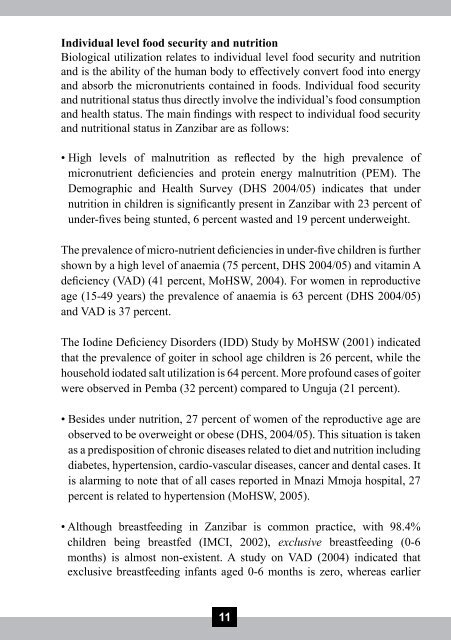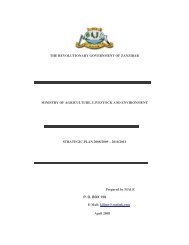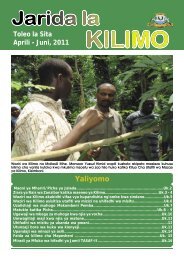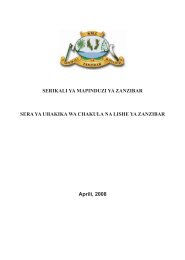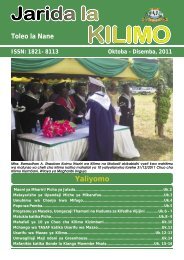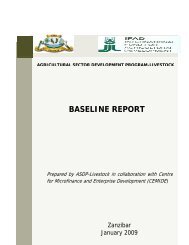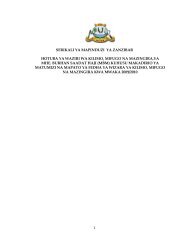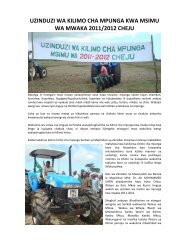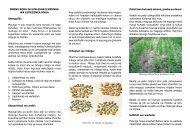ZANZIBAR FOOD SECURITY AND NUTRITION POLICY - Kilimo
ZANZIBAR FOOD SECURITY AND NUTRITION POLICY - Kilimo
ZANZIBAR FOOD SECURITY AND NUTRITION POLICY - Kilimo
You also want an ePaper? Increase the reach of your titles
YUMPU automatically turns print PDFs into web optimized ePapers that Google loves.
Individual level food security and nutrition<br />
Biological utilization relates to individual level food security and nutrition<br />
and is the ability of the human body to effectively convert food into energy<br />
and absorb the micronutrients contained in foods. Individual food security<br />
and nutritional status thus directly involve the individual’s food consumption<br />
and health status. The main findings with respect to individual food security<br />
and nutritional status in Zanzibar are as follows:<br />
• High levels of malnutrition as reflected by the high prevalence of<br />
micronutrient deficiencies and protein energy malnutrition (PEM). The<br />
Demographic and Health Survey (DHS 2004/05) indicates that under<br />
nutrition in children is significantly present in Zanzibar with 23 percent of<br />
under-fives being stunted, 6 percent wasted and 19 percent underweight.<br />
The prevalence of micro-nutrient deficiencies in under-five children is further<br />
shown by a high level of anaemia (75 percent, DHS 2004/05) and vitamin A<br />
deficiency (VAD) (41 percent, MoHSW, 2004). For women in reproductive<br />
age (15-49 years) the prevalence of anaemia is 63 percent (DHS 2004/05)<br />
and VAD is 37 percent.<br />
The Iodine Deficiency Disorders (IDD) Study by MoHSW (2001) indicated<br />
that the prevalence of goiter in school age children is 26 percent, while the<br />
household iodated salt utilization is 64 percent. More profound cases of goiter<br />
were observed in Pemba (32 percent) compared to Unguja (21 percent).<br />
• Besides under nutrition, 27 percent of women of the reproductive age are<br />
observed to be overweight or obese (DHS, 2004/05). This situation is taken<br />
as a predisposition of chronic diseases related to diet and nutrition including<br />
diabetes, hypertension, cardio-vascular diseases, cancer and dental cases. It<br />
is alarming to note that of all cases reported in Mnazi Mmoja hospital, 27<br />
percent is related to hypertension (MoHSW, 2005).<br />
• Although breastfeeding in Zanzibar is common practice, with 98.4%<br />
children being breastfed (IMCI, 2002), exclusive breastfeeding (0-6<br />
months) is almost non-existent. A study on VAD (2004) indicated that<br />
exclusive breastfeeding infants aged 0-6 months is zero, whereas earlier<br />
11


